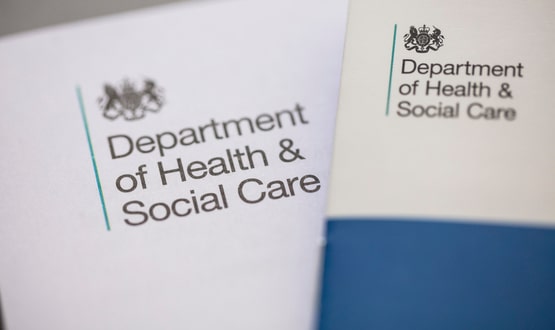£600K Wade-Gery digital review may be delayed
- 25 November 2020

A high-level review of the digital responsibilities of different NHS agencies, which racked up £600k of management consultant fees, is thought to have been postponed.
Digital Health News has learned that the Wade-Gery Review, led by NHS Digital’s new chair Laura Wade Gery and carried out by McKinsey, had been set to recommend the creation of an entirely new Transformation Taskforce unit.
The review had been due to present interim findings to NHS England and Improvement but Digital Health News understands it has been delayed until the New Year.
Ongoing pressures related to Covid-19 and the new vaccination programme are though to be behind the delay, but sources also suggest that the review’s headline recommendations have failed to convince secretary of health and social care Matt Hancock.
The review was commissioned by Hancock in July with an aim to find ways to help the NHS digitise “harder and faster”. It was thought to be triggered by ministerial frustrations at the speed of digital responses in the early phases of the Covid-19 pandemic.
Papers seen by Digital Health News suggest that instead of merging or rationalising existing agencies with digital responsibilities – NHS Digital, NHSX and NHSEI – which had been expected, the review was instead set to recommend an entirely new Transformation Taskforce unit be established.
The papers titled Accelerating Digitally Enabled Transformation are marked as “not government policy” and for internal use only.
It suggests the new taskforce be staffed by up to 300 digital experts and be organised into user journey ‘tribes’. It’s not clear how the new unit would work with NHSX and NHS Digital.
Crucially, the new unit would be accountable to NHSEI and funded by transferring existing resources from NHS Digital and NHSX. Experienced digital leaders and staff from across the system were expected to be drafted in to support the unit’s creation.
One source said: “This has McKinsey’s fingerprints all over it and looks like a pretty generic set of recommendations they could have taken straight off the shelf.”
The proposed new Transformation Taskforce would focus on accelerating digital and non-digital transformation in priority areas by creating three dedicated “user journey teams” of 60-80 staff spanning front-line; analytics; data; product delivery and technical delivery.
The recommendations cite Lloyds and ING banks as blueprints for the creation of digital transformation ‘tribes’ that would be focused on user journeys.
“The user journey teams are actually a pretty good idea, this work needs to be done to repair the system, but the size of the teams proposed looks unwieldly,” one industry source told Digital Health News.
Initial priority areas these teams include cancer screening, mental health, outpatients, last year of life and learning disabilities. Digital Health News understands that rebuilding cancer screening was considered a top priority.
The papers revealed recommendations would be piloted in integrated care systems (ICS) before being scaled up across the health service.
Digital Health News understands the proposals have caused a degree of consternation among some industry leaders.
One NHS source said: “NHSX are very upset as it makes them almost obsolete if NHSEI pick up the transformation mantle. And NHS Digital think that their new chair has sold them down the river as they would likely get massively reduced funding next year.”
A spokesperson for the Department of Health and Social Care said: “There are no plans and no need to set up a new organisation and work on how to further improve the NHS’s use of technology, digital and data is continuing.
“NHSX and NHS Digital are playing vital roles during the pandemic. NHSX’s strategic work, with NHS Digital’s delivery support, has enabled the rollout of remote working for NHS staff, ensured doctors and nurses had access to the information they needed about the patient in front of them, given citizens the digital tools they needed to access coronavirus information and services, and helped the NHS to quickly adopt virtual consultations so patients could continue to access care. We want to build on these achievements to transform and improve services as set out in the NHS Long Term Plan.”
NHSX is little more than 18-months old having been launched in July 2019 as a new unit for accelerating NHS digitisation, responsible for setting national policy and developing best practice for technology, digital and data.
Wade-Gery, who became chair of NHS Digital in September, previously led the e-commerce arm of M&S and before that was chief executive of online business for Tesco. She has been a non-executive director at NHS Improvement since 2018 and is a member of the Government’s Digital Advisory Board.





11 Comments
Back in 1998 , Frank Burns CEO was seconded to DoH to research and wrote the strategy Information for Health. Despite Wirral at that time creating an advanced EPR and later on EHR and integrated health systems across the community, the general opinion was that locally tegu NHS could not do it so a centralised plan evolved , Wanless provided the Dosh, and NPfIT was born and died in childbirth. I was persona non grata at Grangers org for being the first trust (wirral) to pull out of the national programme. So here we are now, trying a mix of central and local, centralised v Big Bang. Certainly a lot of success over the years has been the use of integration , Information for health showed NHS was great but bad at handling the interface between health providers, where the patient got “dropped” . So pushing process into separate teams doesn’t make a lot of sense when the integration effort needs to increase and not made more complex by separate journey teams. But what do I know ….
That’s what comes of a) not examining the options available with their pros and cons b) not planning a pilot c) taking advice from Bill Gates who wouldn’t know a large IT system from a grand piano (Tony Blair asked him) d) not having a tight review schedule so it could change course if need be or abandoned early – saving billions.
This is the basic problem with public sector IT plans. They start with an ambitious set of ‘goodies’, which impress the powers that be, and then find they have caught a tiger by the tail. My view would have been if Wirral worked would to examine it as option 1 for scaling up countrywide, competing with other options, championed by people who know what they are talking about – clinicians plus IT people (no politicians).
With this size of endeavour, being quick on the draw is not always the wisest option.
Agreeing with many sentiments here. The last thing one would expect a fresh pair of eyes on this to recommend would be the formation of yet another central body! Surely clarifying the interplay of the existing national bodies with each other and with the wider service would be a minimal outcome of such a review.
I know it is terribly out of fashion to use experts these days but what did they really expect…..McKinsey know sweet FA about the realities of the digital health & care world, which, by the way, has about as much in common with Tesco online as I do with Brad Pitt……wrong people incapable of finding the right answer
The assumption continually seems to be that because the NHS world is digitally behind the curve it is because the whole space is populated by numpities and so we must get the answer from outside – management consultants, Home Office, our embassy in Israel, GDS and so on…..maybe just maybe, some of the people who have devoted their entire careers to delivering digital services in frontline environments despite continuous FFA might have the odd suggestion on how it should work…..They’d be far cheaper too 🙂
Pathways4Patients … tidy up each patients DATA please,
At the NHS England board meeting on 26th November, this paper asking for legislation to restructure the NHS to make care “place & person” based, & require all organisations to become part of an ICS – with financial control & allocations given to the ICS.
https://www.england.nhs.uk/wp-content/uploads/2020/11/261120-item-5-integrating-care-next-steps-for-integrated-care-systems.pdf
(there are questions embedded – & an email address for comments)
In view of this, how would you see yet another restructuring of NHS IT relating to the overall massive structural changes proposed by 2022?
I wish we could stop all this noise around national IT. It doesn’t do any of them any credit. It seems very disappointing that after all this spend it is still so messy and we must be loosing money in this mess. I just feel completely distressed about the whole scene. Can no one sort this out?
I can.
WOW. NHSD are in trouble. They get a new Chair and the first thing she does is suggest that lots of their work is given away to NHSE, just a year after the Secretary of State for Health decided that lots of their work should go to NHSX.
And remind me what on earth is the point of NHSX these days? If we need a new unit to lead digital transformation because somehow NHSE just can’t stretch to that with their huge budget and massive workforce, then what the point of NHSX.
Can we call this new organisation NHSYisthissuchamess?
You may not like Matt Hancock but if this is true and he has knocked back the creation of “NHSY” I applaud the move. Another tribe is the last thing we need. X was the right idea, some authority to bang heads together at D E and I, unfortunately the post Lansley shambles means no-one is able to govern these empires as currently configured and the whole lot needs reform, not just digital. Central vs local is a conundrum as old as time. Can I have a few hundred grand for this :https://www.digitalhealth.net/2019/10/joes-view-nhs-alphabet/
the providers are doing a great job, the problems are not at the local/operational level, the whole of the NHS needs another shake up and the providers ? they need to be empowered to focus on the operational, to leave the digital behind, to rely on the national for the digital i.e. far less leadership at the national level please and far more digital … NHS A,B,C,E,F,G,H … no thanks just NHS D and nhs.uk, just like gov.uk, thank you
Comments are closed.